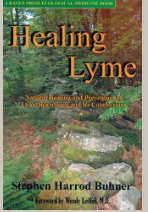Impaired testosterone, estrogenic foods, velvet beans

Thanks for the great resources you’ve provided in the form of your books. I have a couple questions regarding The Natural Testosterone Plan. I have had chronic lyme disease for at least 6 years and I’m doing fairly well in most areas at this time, but have had impaired testosterone for about 2 years. I believe this to be lyme related. In your book you mention the importance of avoiding estrogenic/ antiandrogenic foods, but don’t mention many specifically except for grapefruit and hops. I assume this means avoiding sweet potatoes and soy. I was wondering about stevia, which I have used as a sweetener for several years as part of a low-glycemic diet. I had heard once that there had been some concern over reproductive health and stevia. Do you know anything about it? Also, I’m trying many of the approaches outlined in your book. Including the sprouted fava beans. I was wondering if you could tell me a good dosage for velvet beans and possibly a source (they’re hard to find!). Thanks!
There have been a number of studies on stevia. One with rats showed impacts on male reproductive organs, specifically lower fertility and lower weight of the seminal vesicles. However, other studies with hampsters and, again rats, have found no impacts on fertility. Overview studies on stevia’s impacts on humans have found it safe for use with no adverse impacts. The only thing I can see that might be a problem is that the isolated extract stevioside might have more negative impacts over time than the powdered whole herb, though this is just a tendency. Studies of the isolated constituent have found it safe in many other studies.
![]() posted on September 13, 2007 in hormonal issues, Symptoms
posted on September 13, 2007 in hormonal issues, Symptoms
732 views
Trackback URL: http://buhnerhealinglyme.com/symptoms/impaired-testosterone/trackback/











